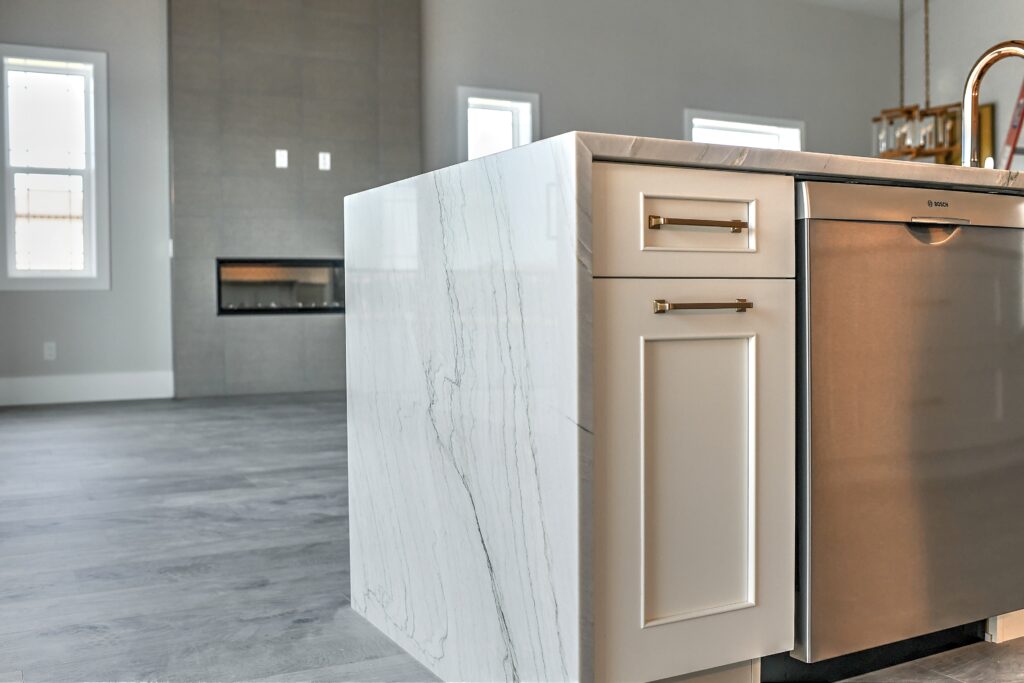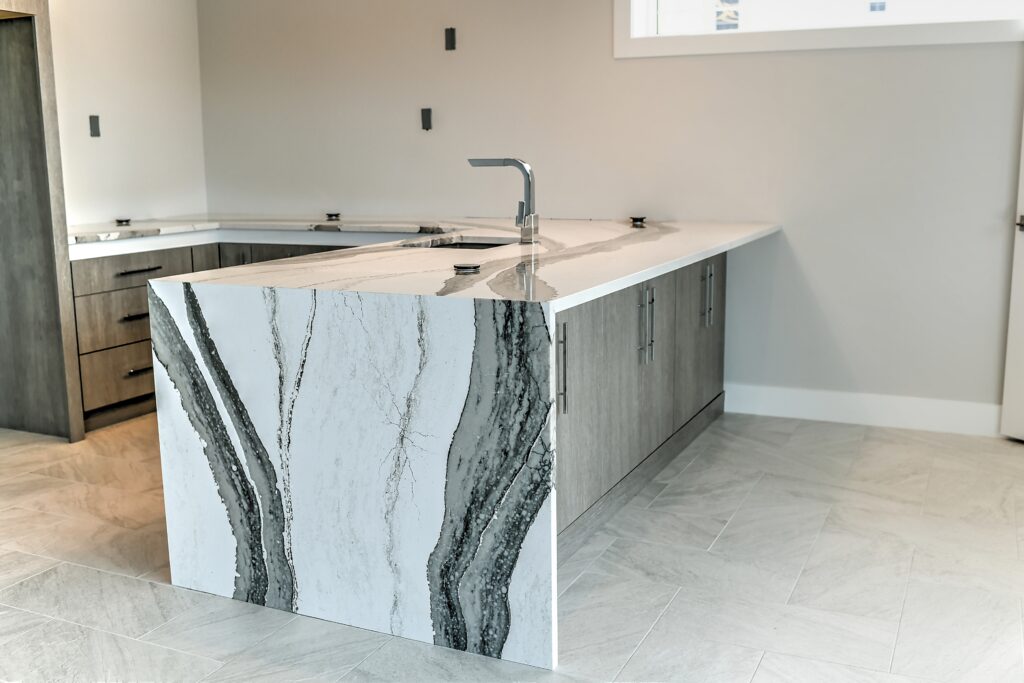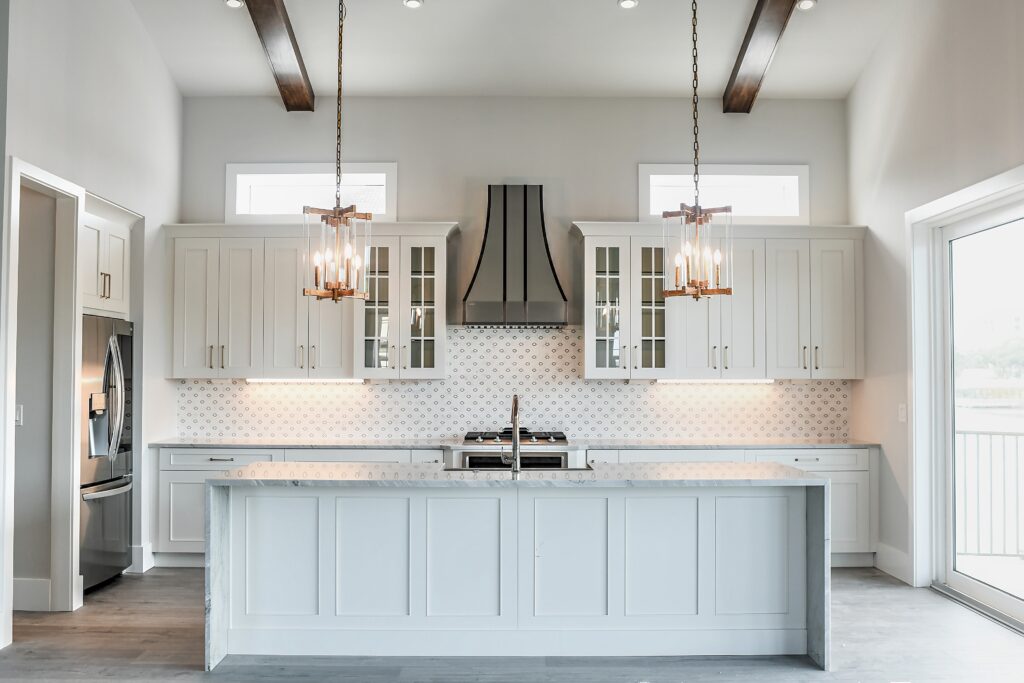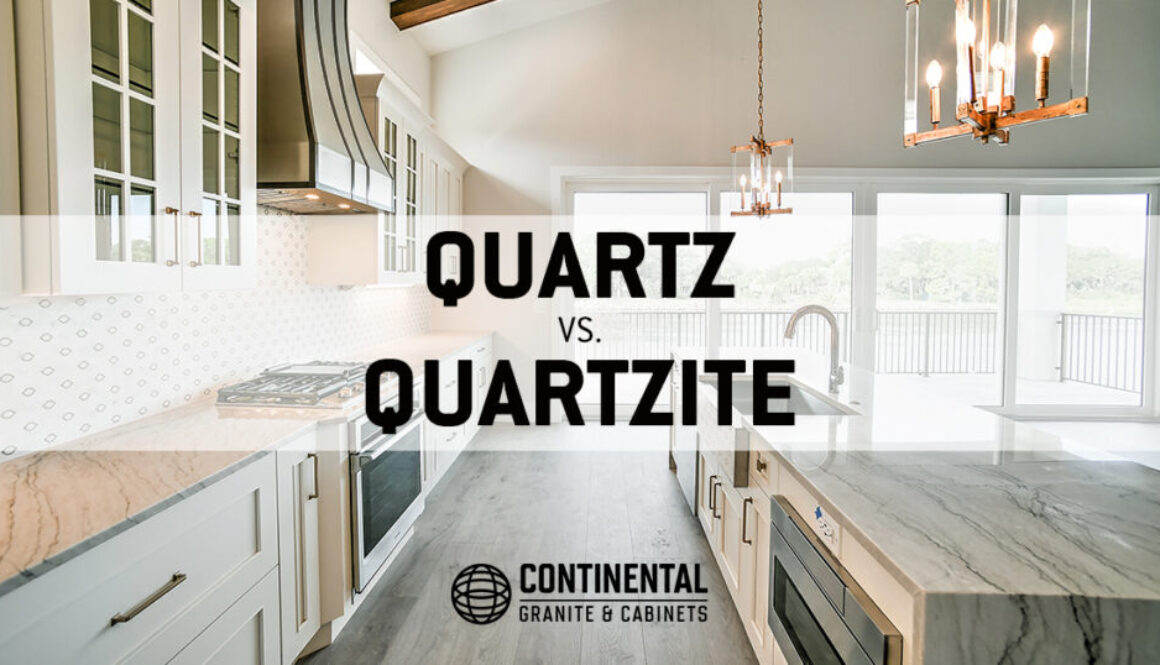Quartz Vs. Quartzite

Natural Vs. ManMade.
The biggest difference between quartz and quartzite is that quartz is a man-made material, while quartzite is a natural stone. A quartzite countertop may appeal to the eco-conscious because it’s made by nature and contains only naturally occurring components. Conversely, the quartz used in countertops is an engineered stone molded and baked into slabs in a factory. Only 90 to 94 percent of it is ground quartz mined from the earth; another 6 to 10 percent is man-made polymer resins and pigments that bind the ground quartz.
Colors and Patterns.
The pigments added to quartz can be used to achieve a wide spectrum of colors. The slabs can be flecked or veined in the factory to display diverse, uniform patterns across. Quartzite comes primarily in shades of white or gray and limited to the pattern created through natural formation.
Moisture Resistance.
Quartz has a non-porous surface that doesn’t require sealing. It serves as an effective barrier against moisture, making permanent staining and bacterial invasions unlikely.
Quartzite, on the other hand, has a more porous surface and a little more susceptible to staining and bacterial invasions if not sealed immediately following installation and on an annual basis thereafter.

Style.
Aside from the different composition of these two materials, the stylistic differences are quite striking as well. Quartzite is often mistaken for marble or granite, as it has the delicate veining of marble and similar coloration and patterning to some granites. Those seeking a natural look with lots of movement may prefer a quartzite countertop.
Because quartzite slabs retain the granular, sugar-like texture of quartz-rich sandstone, they have a slightly coarser feel desirable to those who prefer countertops with a more organic vibe. The resin that binds ground quartz gives the slabs a smooth, seamless finish that imparts a somewhat manufactured look.
Scratch Resistance.
Quartzite is slightly harder and more scratch-resistant than quartz. With that being said, an errant stroke of a knife blade is unlikely to ding or chip either material. It’s a win-win in this category!
Heat Resistance.
Feel free to place hot baking dishes or pans on a quartzite countertop… or quartz for that matter!! Quartz will withstand most of your common kitchen temperatures, however manufacturers do ask that you use a hot pad or trivet when setting down anything above 300 degrees on your quartz countertops.

Cost.
It’s not significant, but due to it’s nature – quartz may be easier on the budget than quartzite. (However – just to note: this all depends on the quartz selection that you make. We provide both high end and lower end quartz options at Continental for every budget). The price difference between quartz and quartzite though is due to the increased complexity of transforming mined quartzite into slabs. Taking 4 times the amount of time to quarry and fabricate it than other stones like granite or marble, on average quartzite will come in a little higher in cost.
There you have it! You can’t go wrong with either stone for your countertops and our team is here to walk you through the entire process from choosing your slab to final installation.
Give us a call or stop by the showroom.
(386) 586-7059
5950 S US Highway 1 Bunnell, Florida

